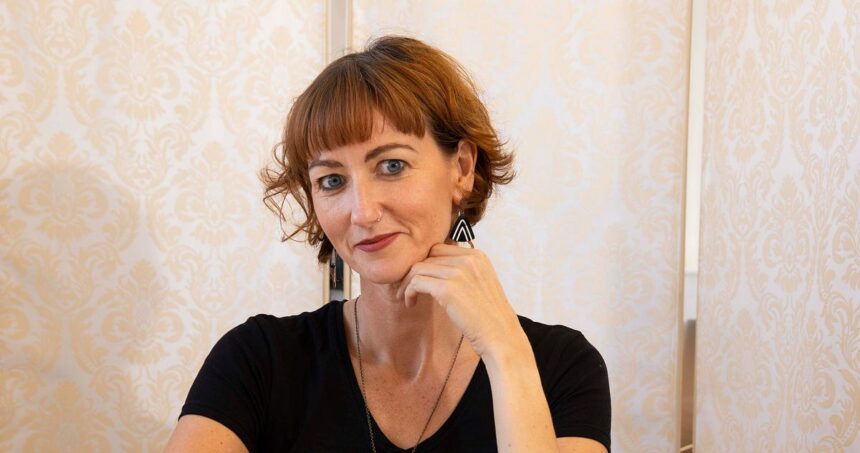Today’s consumers demand more transparency and accountability from the brands they support. In the skincare industry, in-house production is becoming a differentiator. It reflects a company’s commitment to product integrity, supply chain ethics, and customer trust. Those truly invested in their impact view it as essential.
In-house production is an integral part of Holos Skincare’s identity. Niamh Hogan founded Holos as a science-led, plant-based skincare brand focused on supporting skin as it ages. The brand has earned a reputation for marrying the richness of nature and the precision of clinically researched ingredients while maintaining full oversight of its formulations, sourcing, and production practices.
Every formula at Holos is developed, tested, and manufactured in its own facility, allowing the brand to ensure the quality of the products from batch to batch. This is rare in an industry where many companies rely on contract manufacturers and private-label products. Holos stands out for enabling its team to monitor how ingredients interact, how stable the products are, and how they perform on different skin types over time.
Holos addresses the common issue of ingredient opacity (where brands may not fully understand what’s in their products due to relying on third-party manufacturers) by keeping formulation in-house. “We can trace every component in our formulations back to the source,” says Hogan. “It means we allow for immediate accountability if something goes wrong. This is also how we ensure customers always know exactly what they’re putting on their skin.”
Given the lack of standardized transparency across global skincare markets, in-house production serves a pivotal role. There are regions where companies aren’t required to disclose the ingredients used or their origins, which means consumers are left in the dark about what they’re using. “Many so-called ‘natural’ or ‘clean’ beauty brands can still have synthetic stabilizers, petrochemicals, or non-vegan elements without clear labeling,” Hogan remarks.
Holos doesn’t perpetuate ambiguity. It adheres to full International Nomenclature Cosmetic Ingredient (INCI) listings on all packaging and product documentation. INCI naming ensures that ingredients are described in a consistent, internationally recognized format, making it easier for consumers to research their safety and function.
Besides listing ingredients, Holos goes a step further. It champions efficacy, sustainability, and ethical sourcing. Every ingredient is vetted to align with the brand’s values. This means the company prioritizes ingredients that are plant-based (no animal-derived materials are used) and cruelty-free.
This approach is critical, given that Holos begins every formulation with a plant-based foundation. Plant oils and butter provide fatty acids, antioxidants, and phytonutrients that the skin can absorb and use, unlike mineral oils, which sit on the skin’s surface and offer no real nourishment. Layered onto this base are carefully selected active ingredients (e.g., hyaluronic acid, niacinamide, or vitamin C). These are usually associated with clinical skincare and can be harsh or destabilizing if not formulated correctly. Holos helps ensure that they’re blended well to protect the skin barrier while still delivering visible results. These form the base of Holos, offering nurturing, skin-compatible products that are effective and environmentally responsible.
It’s worth noting that Holos products are also responsibly sourced from small and medium-sized suppliers and sustainably packaged. The brand utilizes recyclable materials such as glass and aluminum. Even when global supply costs rise, Holos Skincare chooses not to pass those increases on to consumers.
Moreover, Holos’ in-house production facility is staffed by a small, all-women team of skilled professionals engaged with the brand’s mission and values. Their connection to the products they create translates into a higher level of craftsmanship and attention to detail, boasting a level of thoughtfulness and pride that automated systems cannot replicate.
Holos Skincare’s expansion to the US market reflects the same values that guide its production. It’s growing community-first by engaging with consumers, small wellness shops, and women-led groups in cities like New York, Boston, and Chicago instead of entering through mass distribution channels or large retailers.
This strategy is already showing a promising outcome. One of the brand’s first US customers was an Irish woman living in New York who discovered the brand online and paid international shipping to access it. She later connected with Hogan in person, becoming a brand advocate and a trusted voice for US customer feedback. This relationship-building is the core of Holos’ philosophy of creating products for people and not markets.
The skincare industry will continue to evolve, and questions such as, “What is in your skincare? What and by whom was it made?” will persist. In-house production can help find the answer, as it serves as a blueprint for the future of innovative skincare. Niamh Hogan states: “For me, it’s always about knowing where every ingredient and component comes from and being able to share that with our customers confidently. Beyond the product itself, we aim to build something that does good in the world for our team, our suppliers, and the people who choose us.”










